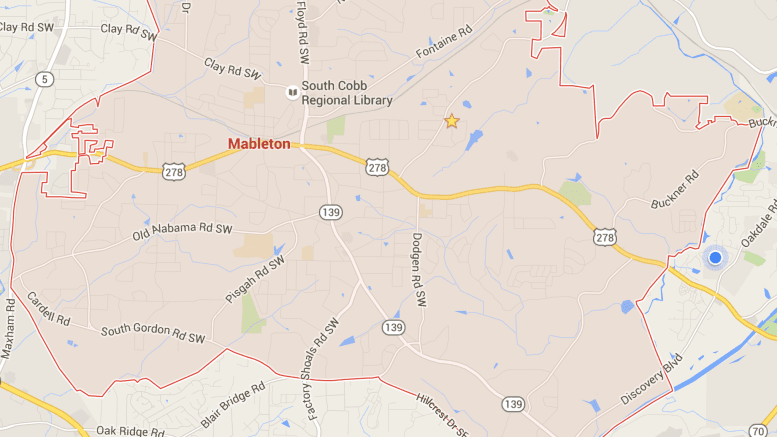The Mableton Improvement Coalition held a meeting Tuesday evening to present information on the pros and cons of forming an incorporated city. Joel Cope, the president of MIC, presided over the meeting. Three panelists involved in forming cities in other areas of metro Atlanta were there to answer questions from the audience about the pros and cons of cityhood.
Cope began the meeting by saying that MIC has no position on whether Mableton should incorporate into a city, and that the purpose of the meeting was to educate the community about the issue.
The panel included Bruce Penn, who is involved in an effort to incorporate Tucker, in Dekalb County, Aaron Johnson, who is working on the incorporation of South Fulton (the only remaining unincorporated area in Fulton County), and Oliver Porter, who led the successful campaign to create the City of Sandy Springs, and served as volunteer interim city manager during the formation of the city.
Before the panelists gave their presentations, and answered questions from the audience, Eddy Barber, whose family has been in Mableton since the 1880s, told the audience about the period from 1912 to 1916 when Mableton was an incorporated city. He said that after a serious flood, Mableton had to appeal to the county for aid, since their population was too tiny at that time to afford the recovery effort. Cobb was unable to provide help to incorporated cities, so Mableton relinquished its charter in order to get help from the county.
The audience was asked to write their questions to the panel on index cards.
The first question was what advantage forming a city would have for Mableton residents, and how the cost and increased taxes could be justified.
Porter said:
I think that in considering any cityhood/incorporation, there are two major factors to consider. The efficiency of the idea, and the responsiveness of it. If you don’t have efficiency, you’re not going to get good services, and if you don’t have a responsive government, you’re not going to be heard …
In Fulton County we had one representative for about every 180,000 people. When we formed a city we had about one representative for every 15,000 , and no representative lived more than two miles from a constituent. So as I told people in meetings like this before Sandy Springs. we can get our hands around their necks …
Efficiency means that you can get more service for less taxes basically. You do not have to face a tax increase to form a city. None of the cities that I advised had tax increases.
He said that those cities had been able to carve out sufficient funds from the county revenues for their area to form and operate the cities.
Johnson talked about how local option sales tax revenues are dispersed within counties, using Fulton County as an example. He said the money from the sales tax is put into a big pot, and distributed to various governments in order of population. So, in Fulton, Atlanta gets the biggest cut, followed by the other, smaller, cities, and finally the remaining money is put into the general fund. He said if you’re a city, you can make decisions about how to allocate the local option money: police, fire department, etc. But for the unincorporated areas there were limitations on how the money could be used.
Penn said that one of the biggest misconceptions the Tucker cityhood effort had to address was the idea among many residents that if you incorporate, taxes would necessarily go up. He said that taxes may or may not increase, depending on how well run the city is, and the feasibility of the city’s plan.
Porter talked about the expensive process of getting a viability study done. The study, to determine whether the population and businesses within the boundaries of the proposed city can support a government and its services, costs between $30,000 and $50,000, and is required by the state before they will consider chartering the city.
An audience member said that Smyrna taxes were higher than the taxes in unincorporated Cobb County, and asked the panelists to comment on that. Penn said that Smyrna’s taxes were higher because they spend substantial money on ambitious planning and improvement projects. Porter said that Smyrna was also a long term traditional city with many of the things built in that are wrong with long term traditional government. He said that Sandy Springs had managed to find a model that was much more efficient in its use of taxes. Throughout the evening Porter emphasized the model adopted by Sandy Springs, which contracts out city services to private companies.
The last question from the audience stated that the panelists seemed to be only putting forward the positive aspects of cityhood, and asked that the panelists address the downsides.
Penn and Johnson both said that until recently, they saw no reason for their areas, Tucker and south Fulton, to incorporate, and that if citizens of Mableton are currently happy with services provided by Cobb County, keeping things they way they are is fine.
Porter said that the Sandy Springs experience had been mostly positive from his perspective, and if he had it to do over again the only change he would make would be to push for the city to take on more services.
